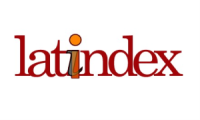Reverse post-consumption cycle for a paper items manufacturing industry
Abstract
The growth in competitiveness, the relentless search for cost minimization, the reduction of environmental impact, sustainability and compliance with laws, have leveraged studies on the potential of Reverse Logistics when implemented in the most diverse means of the industry to explore its benefits. Therefore, this research aims to demonstrate how the implementation of reverse logistics can establish ways of adapting to the new needs of the industry, enhancing its gains, visibility and productive growth within an industry producing school and office supplies. To this end, a qualitative research was carried out based on technical visits and interviews with professionals in management positions at the company. During the development process, reverse logistics techniques were also used, such as product life cycle assessment. In addition to contributing to the development of the literature on reverse logistics, this work brings positive results to all links involved in the system.
Downloads
References
G. C. Machado, P. P. Feres, and M. F. S. Gonçalves, “Reverse logistics: feasibility analysis of the collection and restitution of lubricating oil used or contaminated”, JETIA, vol. 5, no. 17, Mar. 2019.
J. G. Silva, M. P. S. Silva, L. G. Maia, and K. R. B. Souza, “Reverse Logistics: An analysis of the discarding of overdue supermarket products in the city of Petrolina-PE”, JETIA, vol. 5, no. 17, Mar. 2019.
D. S. Rogers, and R. S. Tibben-Lembke, “Going Backwards: Reverse Logistics Trends and Practice.” Nevada: Reverse Logistics Executive Council, 1998.
G. T. S. Ho, C. H. Y. Lam, and D. W. Wong, “Factors influencing implementation of reverse logistics: a survey among Hong Kong businesses.” Measuring Business Excellence, vol.16, no. 3, 2012.
P. R. Leite. “Logística Reversa: Sustentabilidade e Competitividade.” São Paulo: Saraiva, 2017.
C. F. Coelho, “Análise de Fluxo de Material no Processo de Preparação do Minério de Ferro para Indústria Siderúrgica.” Dissertação de Mestrado, Programa de Pós-Graduação em Engenharia de Produção da Universidade Estadual do Norte Fluminense Darcy Ribeiro, Rio de Janeiro, 2013.
A. M. Nascimento, M. S. Machado, R. S. A Meneguelli, U. A. F. Barreto, R. F. Toledo, “Fatores críticos de risco no gerenciamento logístico de alimentos perecíveis”, Revista de Trabalhos Acadêmicos Lusófona, vol. 2, no 2, 2019.
M. Fleischmann, P. Beullens, J. M. Bloemhof-Ruwaard, L. N., and van Wassenhove, “The impact of product recovery on logistics network design.” Production and Operations Management, vol. 10, no. 2, 2001.
A. S. Miranda, R. S. N. Santana, R. F. P. Oliveira, and S. S. Oliveira, “Reverse Logistics Competitiveness Factor And Sustainability In Companies”, JETIA, vol. 2, no. 6, Jun. 2016.
D. V. Barboza, F. A. Silva, W. H. Motta, M. J. Meiriño, Faria, A. V. “Aplicação da economia circular na construção civil.” Research, Society and Development, vol. 8, no. 7. Jul. 2019.
J. F. Silva, D. V. Barboza, R. L. F. Bella, and M. J. Meiriño, “Sustentabilidade em microescala: estudo de caso de uma padaria de bairro.” Mix Sustentável, vol. 5, no. 3, Jul. 2019.
A. M. Costa, A. K. M. Mattos, Rodrigues N. M., and D.V. Barboza, “Aplicando a modelagem de processos de negócio em uma retificadora de motores em Cabo Frio-RJ”, Brazilian Journal of Production Engineering, vol. 5, no.2, 2019.
R. Dias, “Gestão Ambiental: Responsabilidade Social e Sustentabilidade.” São Paulo: Editora Atlas, 2017.
V. S. Gonçalves, E. R. Gonçalves-Júnior, D. L. Rocha, and B. S. Gonçalves, “Análise de Casos Múltiplos no Setor Hoteleiro quanto a Sustentabilidade e Gestão Ambiental.” Revista de Trabalhos Acadêmicos Lusófona, vol. 2, no. 2, Mai. 2019.
M. M. Costa, “princípios de Ecologia Industrial aplicados à sustentabilidade ambiental e aos sistemas de produção de aço”, Tese de Doutorado, Programa de Pós-Graduação em Planejamento Energético da Universidade Federal do Rio de Janeiro, Rio de Janeiro, 2002.
BRASIL. Decreto nº 7.404, de 23 de dezembro de 2010. Regulamenta a Lei no 12.305, de 2 de agosto de 2010, que institui a Política Nacional de Resíduos Sólidos, cria o Comitê Interministerial da Política Nacional de Resíduos Sólidos e o Comitê Orientador para a Implantação dos Sistemas de Logística Reversa, e dá outras providências. Diário Oficial da União, Brasília, 23 dez. 2010. Disponível em: <http://www.planalto.gov.br/ccivil_03/_Ato2007-2010/2010/Decreto/D7404.htm>. Acesso em: 01 abr. 2015.
C. E. G. Farias, “Mineração e Meio Ambiente no Brasil”, 2002, Disponível em: < http://www.em.ufop.br/ceamb/petamb/cariboost_files/miner_c3_a7_c3_a3o_20e_20meio_20ambiente.pdf>. Acesso em: 21 abr. 2018.
BRASIL. Lei Nº 9.605, de 12 de Fevereiro de 1998. Dispõe sobre as sanções penais e administrativas derivadas de condutas e atividades lesivas ao meio ambiente, e dá outras providências. Diário Oficial da União, Brasília, 12 Fev. 1998. Disponível em: <http://www.planalto.gov.br/ccivil_03/leis/l9605.htm>. Acesso em: 27 mar. 2018.
J. W. Creswell, “Projetos de pesquisa: Métodos qualitativo, quantitativo e misto”, 3. de, Porto Alegre: Artmed, 2010.
R. K. Yin, Estudo de caso: planejamento e métodos. 3. ed. Porto Alegre: Bookman, 2005.
M. Bravo, “Meio Ambiente e Sustentabilidade”, CBN Vitória, 2011. Disponível em: <http://gazetaonline.globo.com/_conteudo/2014/07/cbn_vitoria/comentaristas/marco_bravo/1482286-conheca-os-efeitos-positivos-do-uso-sustentavel-do-papel.html>.
J. E. G. Arteaga, S. B. Barroso, L. V. Coca, O. U. Pascual, and L. H. García, “Implementation of scada system to the central liquor factory”, JETIA, vol. 4, no. 13, pp. 66-71, Mar. 2018.

This work is licensed under a Creative Commons Attribution 4.0 International License.











